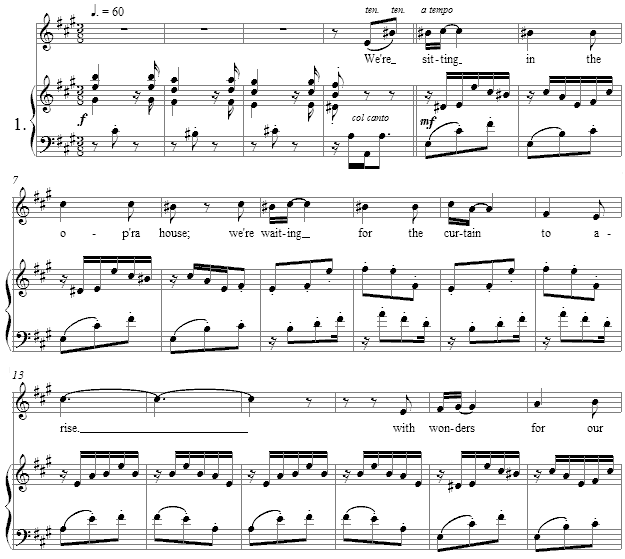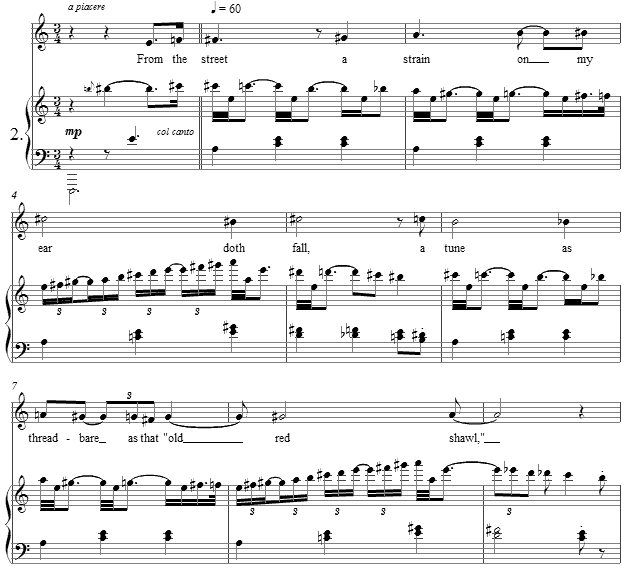Music and Texts of GARY BACHLUND
Vocal Music | Piano | Organ | Chamber Music | Orchestral | Articles and Commentary | Poems and Stories | Miscellany | FAQs
Memories - (2008)
Charles E. Ives
for medium voice and piano
i. Very Pleasant [ 4 pages, circa 1'40" ]
We're sitting in the opera house;
We're waiting for the curtain to arise
With wonders for our eyes;
We're feeling pretty gay,
And well we may,
"O, Jimmy, look!" I say,
"The band is tuning up
And soon will start to play."
We whistle and we hum,
Beat time with the drum.
We're sitting in the opera house;
We're waiting for the curtain to arise
With wonders for our eyes,
A feeling of expectancy,
A certain kind of ecstasy,
Expectancy and ecstasy... Sh's's's.
ii. Rather Sad [ 3 pages, circa 2' 00" ]
From the street a strain on my ear doth fall,
A tune as threadbare as that "old red shawl,"
It is tattered, it is torn,
It shows signs of being worn,
It's the tune my Uncle hummed from early morn,
'Twas a common little thing and kind 'a sweet,
But 'twas sad and seemed to slow up both his feet;
I can see him shuffling down
To the barn or to the town,
A humming.[ 7 pages, circa 3' 40" ]
Charles Ives
Along with my other settings of texts of this quintessential American composer and poet - The Circus Band and Other Delights (2006) and The Things Our Fathers Loved (2008) -- I chose to set these texts from 1897 in a fanciful "period" voice, echoing another time. The sentiment of the texts are of reflective youthfulness -- in its "very pleasant" "expectancy and ecstasy" and in its perspective on age which is obviously "rather sad."
The first text imagines an "opera house," though of course by this is meant something more popular as there is mention not of an orchestra, but "the band." Whistling, humming and beating "time with the drum" are the province of the music hall and variety show. The buildings in which small town America saw and heard such entertainments were called "opera houses," a far cry from today's opera house of the sort in which I have performed in the last decades. Lower neighbors to the third and fifth of the scale help to capture this sort and style of entertainment, and the triple rhythm spelled in 3/8 time is meant to picture is notation the fluff and filigree of such entertainments. "Opera" is of course a two syllable word in this context.
The second setting, also in triple meter, is spelled in the "longer" 3/4 notation as the "strain" of a nostalgic tune lingers seemingly in the distance. While the first setting sits squarely in A major, this setting while mostly "on" A minor vacillates between the major and minor through the long-lined chromaticism of the voices.
The score for Memories is available as a free PDF download, though any major commercial performance or recording of the work is prohibited without prior arrangement with the composer. Click on the graphic below for this piano-vocal score.


